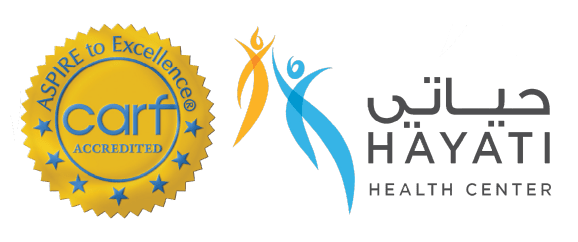Learn new skills to help communicate effectively every day
Speech therapy is all about helping your child to communicate. Our highly qualified and experienced team of speech-language therapist work together to offer a fun, stimulating, safe and caring environment for our clients and their families.

Speech Disorders:
Articulation and phonological disorders, Apraxia of speech , unclear speech, Stuttering and Voice disorders.
Language Disorders:
Late talkers, Receptive language disorders, Expressive language disorders.
Other Disorders:
Hearing loss, Oral/Motor disorders, Swallowing, Autism spectrum disorders, Attention Deficit, Dysarthria, Cleft lip/palate and Dyslexia.
Our Approach ?
Our teams of Speech therapists are able to administer a range of assessments to understand your child's areas of strength and development. Assessments may include formal standardized assessment or informal assessment through play, observation and conversation.
We take a holistic and evidence-based approach that is tailored to meet your child’s needs .Our enthusiastic team will work with you and your child to find the right strategies to achieve life-changing outcomes.
Speech therapy is not just for helping children learn to speak clearly – we are experts in all aspects of communication, both spoken and written.
We take a holistic and evidence-based approach that is tailored to meet your child’s needs .Our enthusiastic team will work with you and your child to find the right strategies to achieve life-changing outcomes.
Speech therapy is not just for helping children learn to speak clearly – we are experts in all aspects of communication, both spoken and written.
FAQ'S
Speech therapists, or speech-language pathologists (SLPs), work with children in four main areas: articulation (speech sounds, intelligibility), language (receptive and expressive), pragmatics (social language skills), stuttering/fluency, and feeding (oral motor, swallowing, some sensory).
A soon as you notice there is a delay in your child’s speech and language development.
RED FLAGS:
If your child is not using enough words and gestures to express his or her needs as per age.
* Unable to follow your instruction.
* If your child appears restless and is unable to focus on an activity.
* When not responding to his or her name.
* Unable to make eye-contact with you
* Unable to imitate your actions and words.
* Unable to focus when you point things.
* When no pretend and imaginative play.
If your child is not using enough words and gestures to express his or her needs as per age.
* Unable to follow your instruction.
* If your child appears restless and is unable to focus on an activity.
* When not responding to his or her name.
* Unable to make eye-contact with you
* Unable to imitate your actions and words.
* Unable to focus when you point things.
* When no pretend and imaginative play.
Language therapy is part of speech therapy. Speech-language pathologists (SLPs) assess and work on receptive language (what a child understands) and expressive language (how a child communicates his or her wants, needs, and desires.)
An evaluation allows a speech therapist the opportunity to assess your child’s development. This assessment may include a standardized test, observation through play, medical history information, and/or parent report. In most cases, it includes all four. Through the evaluation, it will be determined if treatment is necessary.
A general rule of thumb about children’s speech and language development is that most children use single words at age 1, two-word combinations at age 2, and three-word phrases at age 3. There can be a number of reasons why children don’t talk. Some of these reasons might be related to problems with hearing, muscle coordination, learning or experience. The best way to find out if there is a problem that your child needs help with is to get professional information through an screening or assessment conducted by a speech-language pathologist.
Therapy duration is dependent on a number of factors:
• Type and level of impairment (clients with significant disabilities such as cognitive delay or autism spectrum disorders receive ongoing support and treatment vs. clients with articulation disorders, who are in therapy for a short number of weeks/months.)
• Presence of maintaining factors (e.g., psychiatric diagnosis, other structural/functional deficits.)
• Existence of additional support services (is the child receiving school based therapy, behavior therapy, reading recovery, etc.)
• Parental involvement (supervision of homework, reinforcement of current skills.)
• Client motivation.
• Type and level of impairment (clients with significant disabilities such as cognitive delay or autism spectrum disorders receive ongoing support and treatment vs. clients with articulation disorders, who are in therapy for a short number of weeks/months.)
• Presence of maintaining factors (e.g., psychiatric diagnosis, other structural/functional deficits.)
• Existence of additional support services (is the child receiving school based therapy, behavior therapy, reading recovery, etc.)
• Parental involvement (supervision of homework, reinforcement of current skills.)
• Client motivation.
Client progress is charted on an ongoing basis. Frequent reassessments of deficit areas are administered during the course of treatment.
Speech therapists (SLPs) know the ins and outs of the oral motor structures and focus on the “act” of eating. If your child is having difficulty chewing/manipulating foods, keeping food in their mouth, taking a long time to chew/swallow, and/or are coughing a lot during meals, an SLP will do your evaluation. Occupational therapists (OTs) know all things sensory. If your child is showing difficulties with specific textures, flavors, colors of foods, temperatures, etc., an OT will do your evaluation. In many cases, children with feeding issues have both oral motor and sensory difficulties






